QSDA2018 Online Practice Questions and Answers
Refer to the exhibit.
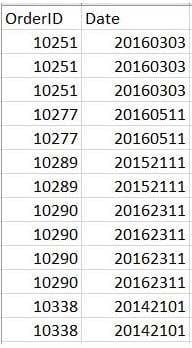
A data architect needs to build a sales dashboard. Data is stored in a legacy database. The extracted data contains the date in the format, `YYYDDMM'. Due to the source date format, the dates are being loaded as numbers.
Which function should the data architect use to fix this issue?
A. Timestamp
B. Date
C. Date#
D. Timestamp#
Refer to the exhibit.
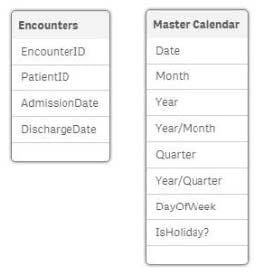
A major healthcare organization requests a new app with the following requirements:
Users can filter AdmissionDate and DischargeDate by all fields in the master Calendar table
Use an existing QVD file, which includes dates 20 years into the future
Users should not be able to filter on dates that have no associated encounters
Which approach should the data architect take to meet these requirements?
A. 1. Load the Encounters table
2.
Perform a Left Join Load on the Encounters table to the master calendar and alias the date fields appropriately for the Admission Date
3.
Perform a Left Join Load on the Encounters table to the master calendar and alias the date fields appropriately for the Discharge Date
B. 1. Load the master calendar
2.
Create two mapping tables called AdmissionCalendar and DischargeCalendar from the Resident master calendar that has all fields appropriately named
3.
Load the Encounters and use ApplyMap for the AdmissionDate and DischangeDate appropriately.
C. 1. Load the Master Calendar and Encounters tables.
2.
Perform a Join Load on the Encounters table to the Resident master calendar and alias the date fields appropriately for the Admission Date
3.
Perform a Join Load on the Encounters table to the Resident master calendar and alias the date fields appropriately for the Discharge Date
D. 1. Load the master calendar as AdmissionCalendar and alias the fields to reflect they are for Admission
2.
Load the master calendar as Discharge Calendar and alias the fields to reflect they are for Discharge
3.
Load the Encounters table
The dates are stored as strings in the database. The data architect must convert the dates to date format. The reload must be as fast as possible.
Which script should the data architect use?

A.
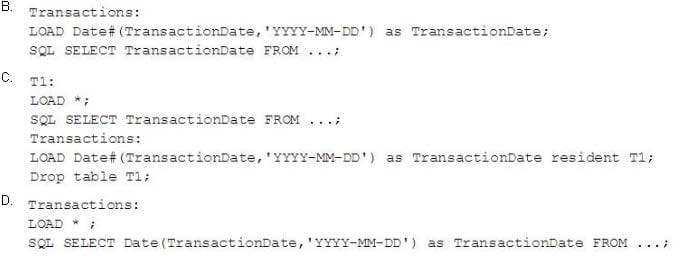
B. C. D.
Refer to the exhibits.
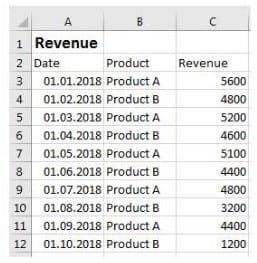
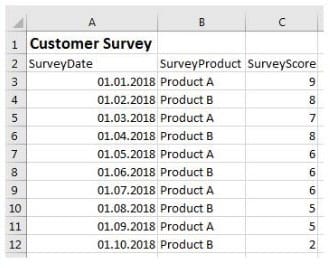
A company notices that product sales have decreased. A data architect needs to create an app to show the correlation between the decreased revenue and the latest customer survey results.
Which Qlik Sense feature should the data architect use to meet this requirement?
A. Section access
B. On-demand App Generation
C. Master item library
D. Associative data model
Refer to the exhibit.
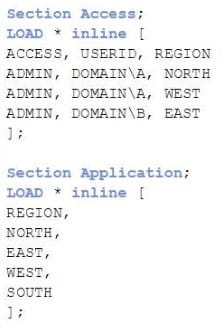
How should the account that runs the Qlik Sense Services be configured in the Section Access table?
A. ADMIN, QLIK_SERVICES,
B. ADMIN, DOMAIN/QLIK_SERVICES,
C. ADMIN, QLIK_SERVICES,*
D. ADMIN, DOMAIN\QLIK_SERVICES,*
Refer to the exhibit.
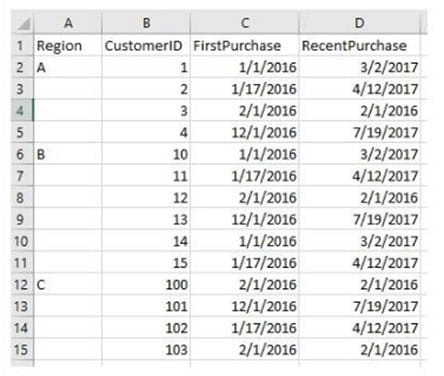
One of the data sources a data architect must add for a newly developed app is an Excel spreadsheet. The Region field only was values for the first record for the region. The data architect must perform a transformation so that each row contains the correct Region.
Which function should the data architect implement to resolve this issue?
A. CrossTable
B. IntervalMatch
C. Above
D. Previous
Refer to the exhibit.
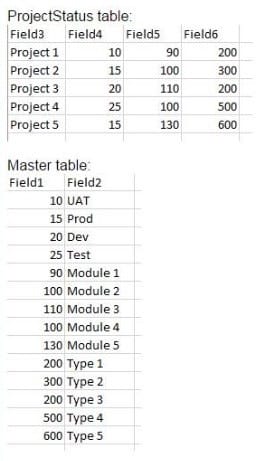
A data architect needs to build a Project Management dashboard. The ProjectStatus table lists all indexes in the fields. Descriptions for the indexes are stored in a single Master table.
To build the dashboard, all descriptions should be in a single table:

Which function should the data architect use to meet this requirement?
A. Join
B. PurgeChar
C. ApplyMap
D. Keep
Refer to the exhibit.

A fashion retail company needs to analyze data product inventory. The company needs to filter by attributes by such as color, material, and size.
Which strategy should a data architect use to meet these requirements?
A. Turn data rows into fields by using a generic load
B. Use the hierarchy load statement to expand hierarchy levels
C. Use crosstable in the load statement to unpivot
D. Loop through the table to transpose fields
Refer to the exhibits.
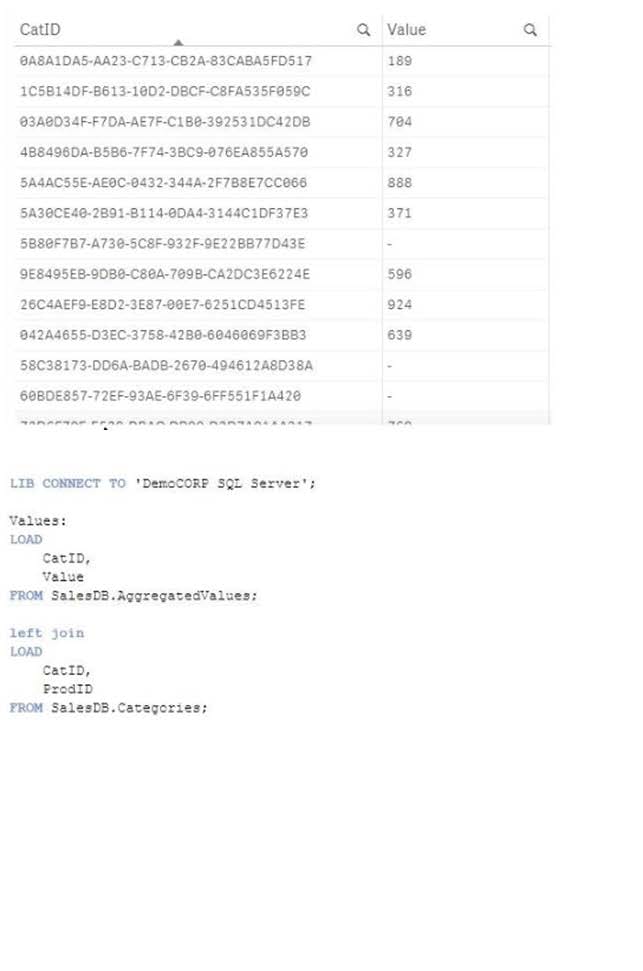
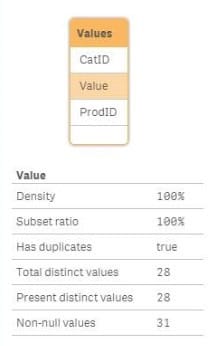
Business analytics report data issues in the Value field of a table since the latest reload of the data.
What causing this issue?
A. Null values in the source data
B. Hyphen characters (`-`) in the source data
C. Pre-aggregated data is being used
D. Some categories do NOT exist in the Category table
Refer to the exhibit.
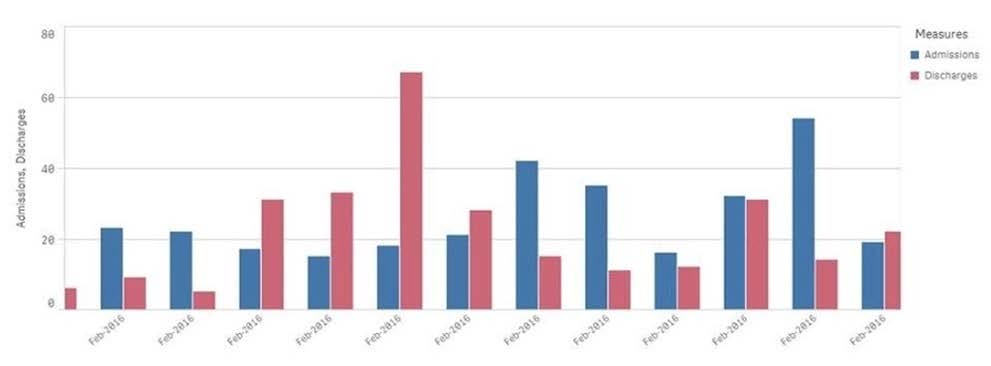
A chart for monthly hospital admissions and discharges incorrectly displays the month and year values on the x-axis. The date format for the source data field "Common date" is M/D/YYYY. This format was used in a calculated field named "Month-Year" in the data manager when the data model was first built.
Which expression should the data architect use to fix this issue?
A. Date (MonthsStart ([Common Date]), `MMM-YYY')
B. Date (MonthStart ([Common Date]), `MMM-YYY')
C. Date ([Common Date], `MMM-YYY')
D. Date (InMonth([Common Date]), MMM-YYYY')